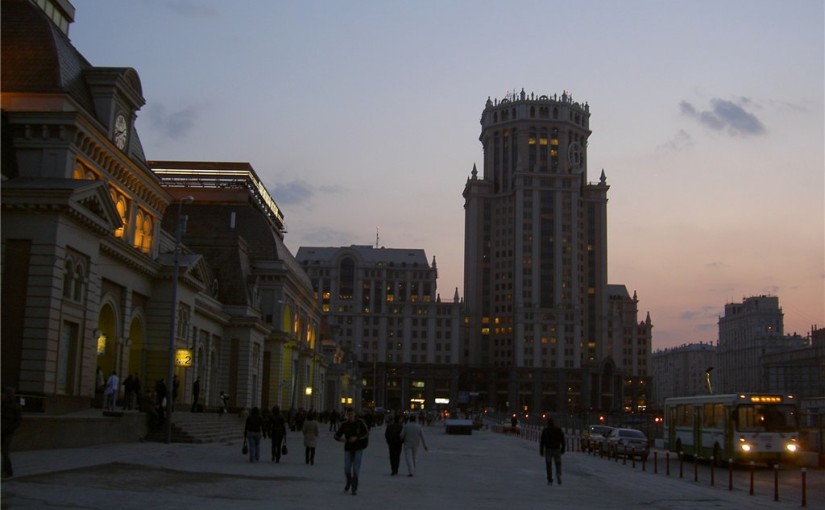Category: media ecology
-

Generative AI As High-res Clipart. Does Rainbow Cyber Hide Techno-Authoritarianism?
I remember when the first powerful Macs came out, like the Quadra, enabling desktop publishing tools like Aldus PageMaker to fuel the desktop revolution. Suddenly anyone could create a “design” (in the nouning of a verb, objectifying sense) and print materials, but graphics often came from clipart catalogs since digital cameras were not yet common.…
-

Why Our Tech Talk Needs A Values Talk
(Or, why we need to remove that elevated freeway to hell paved with “good” tech intentions) That breathless hyper excitement so often celebrated in talk about technology is not new. Almost 100 years ago (about 3 generations ago) the automobile was the “Big Data” application or fancy wearable of its day. It was a product…
-

Moscow, Place-full Global City
It’s 6AM in Moscow, I’m on the street near the Yugo-Zapadnaya metro station, the second to last stop on the southern end of the red line. Staying at Shaninka University for the duration of the Urban Studies mini-course on digital placemaking I was teaching meant getting up early to catch a cab to the Paveletsky…
-

Dark Light, A Solar Eclipse Writing Month
I’ve been here in Moscow teaching a mini-course on digital placemaking and wise city methods, a project one year in the planning. Today, it’s the first day of Spring in the northern hemisphere, students at a university here look up through compact discs to see the eclipse, a coincidence with the Spring equinox not seen…
-
Grounding Actually
By Maxine Greene. 1988. Freedom, Education, and Public Spaces. In The Dialectic of Freedom. Via Catherine Despont’s Teaching Roundtable at Pioneer Works.
-
Embrace The Mayoral Shift, The Two Decade Old NYC Tech Boom Has Always Been About Bottom-Up Tech Diffusion & Urbanization
Like the right-wing myth of the broken windows theory, some people who make the FUD-inducing pro-Bloomberg warnings that the NYC tech industry should be wary of not having a cheerleader in mayor-elect de Blasio basically ignore the general social & tech paradigm shifts going on: in this case, since the 1990s, the move to a…